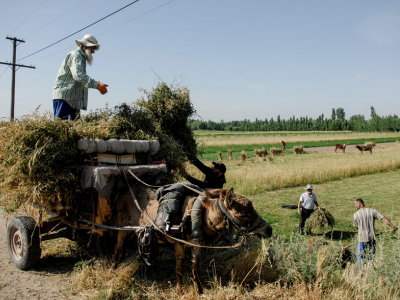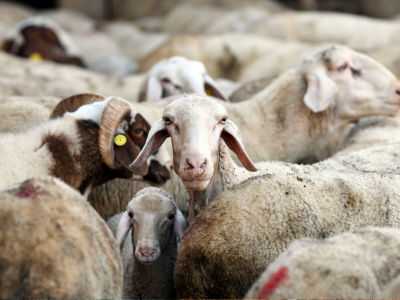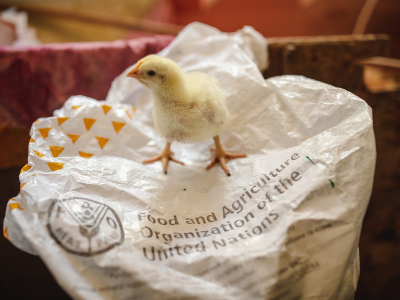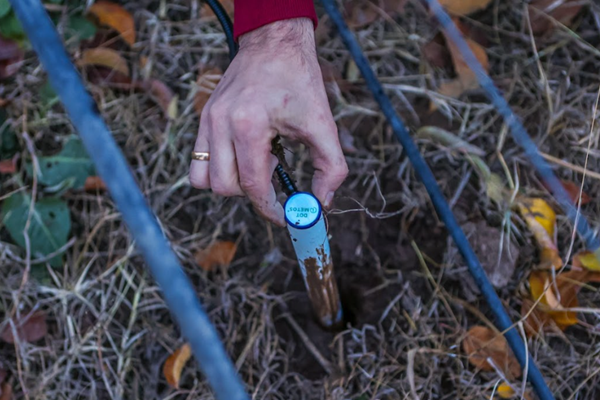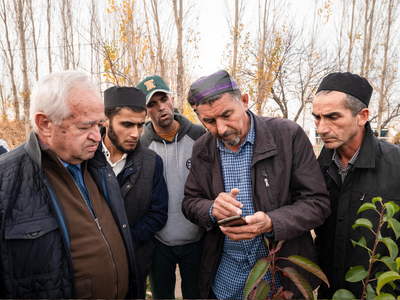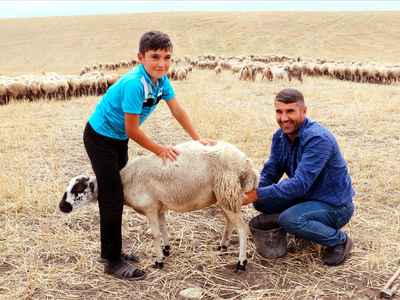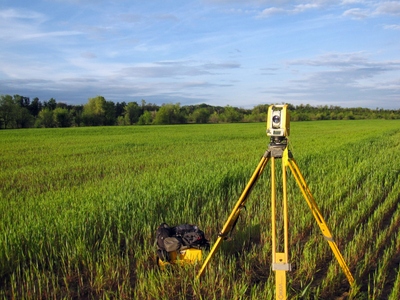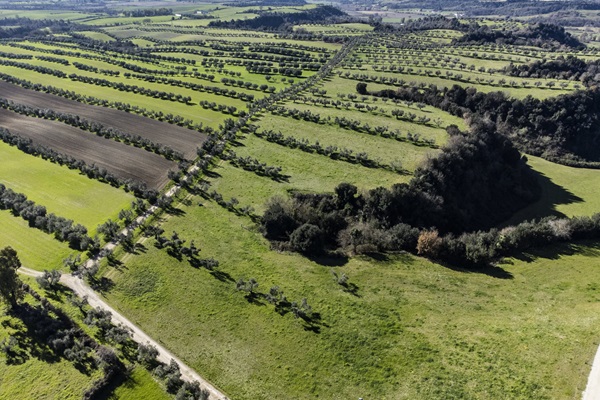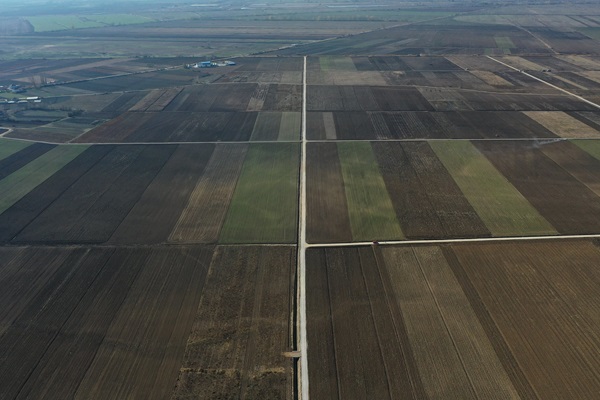This Regional Priority Programme uses a complex, multidisciplinary and area-based development approach, tailored to the Europe and Central Asia region. It takes into consideration the region’s heterogeneity and the special challenges it faces.
The overall goal is to address the key problems of rural people by empowering smallholders and family farms to improve their livelihoods. Elimination of rural poverty, improving the resilience of rural populations (with a focus on smallholders) and inclusive growth for rural economies based on sustainable use of natural resources are the basic principles of the Priority Programme.
The work focuses equally on technical issues (animal health, production, phytosanitary and so forth) and social, economic and environmental aspects. Inclusiveness – with respect to gender and vulnerable groups, for example – is also a key principle.
The Priority Programme tackles two main areas: (1) policy, institutions and governance, and (2) farms and communities. Priority actions include strengthening governance and policies, building capacities, enhancing participatory approaches, supporting small holders in sustainable production technologies, supporting land consolidation processes, income diversification, and improving smallholder access to markets, rural finance and value chains.
The Priority Programme aims to achieve the following results:
- Increased participation of farmers and rural communities in national development;
- Enhanced sustainable and inclusive growth of rural economies;
- Improved sustainable management of natural resources.
- Activities are in the following areas:
- sustainable management of agricultural land and water resources;
- intensification of smallholders’ production in a sustainable manner;
- strengthening the organizations of small producers and family farms;
- enhancing rural services – such as advisory services and micro-loans.
Results are foreseen mainly in:
- increased participation of farmers and rural communities in national development;
- enhanced sustainable and inclusive growth of rural economies;
- improved sustainable management of natural resources;
- dissemination of sustainable agricultural best practices;
- strengthened governance to support producers and resource managers;
- enhanced and equitable access by smallholders to productive resources, services, organizations and markets;
- development of inclusive and efficient agribusinesses and agrifood chains.
Events
5/ 6
2024
7/6
2024
15th International LANDNET Workshop
Middelburg (Netherlands), 05/06/2024 - 07/06/2024
The 15th LANDNET workshop will take place from 5 to 7 June 2024 in Middelburg, Netherlands. The workshop is organized by FAO together with Kadaster and the Province of Zeeland in the Netherlands.
13/ 12
2023
Regional consultation on integrated land use planning
Virtual Event, 13/12/2023
FAO published the first 'Guidelines for land-use planning' in 1993 as the first key source of knowledge on land use planning. After 30 years, new challenges, demands and insights for integrated land use planning call for an update of these guidelines. In this context, FAO has been working on the new version of 'Guidelines for integrated land use planning - an update' in collaboration with key p...
29/ 11
2023
30/11
2023
Regional Rural Youth Forum for Europe and Central Asia
Budapest (Hungary), Hybrid Event, 29/11/2023 - 30/11/2023
To better coordinate the youth-related work and processes in the ECA region, under the Regional Priority Programme on Empowering smallholders, family farms and youth, facilitating rural livelihoods and poverty reduction, FAO organizes the Regional Rural Youth Forum for Europe and Central Asia.
5/ 9
2023
Youth consultation: Take action and scale up initiatives to reduce food loss and waste
Virtual Event, 05/09/2023
Join us for the conversation on shaping food waste policy in Europe and Central Asia. Food waste has wide-ranging consequences, impacting resources, the environment, and social equity. At the World Food Forum, we are dedicated to reducing food waste globally. In response to its importance, our Europe and Central Asia team conducted a comprehensive analysis of food waste policy in the region, id...
5/ 9
2023
7/9
2023
14th International LANDNET Workshop
İstanbul (Türkiye), 05/09/2023 - 07/09/2023
The 14th international LANDNET workshop will take place from 5 to 7 September 2023 in Istanbul, Türkiye, organized by FAO in collaboration with the Ministry of Agriculture and Forestry of Türkiye.
22/ 6
2022
24/6
2022
2nd Regional Workshop on integrated community development
Budapest (Hungary), Hybrid Event, 22/06/2022 - 24/06/2022
Based on country experiences, FAO aims at further developing the concept of integrated community development for Europe and Central Asia. FAO established an informal regional technical network on community development in 2019. The 2022 workshop should help revitalize the technical network and strengthen partnerships with key regional and national actors.
18/ 5
2023
Digital Villages in Action in Europe and Central Asia
Virtual Event, 18/05/2023
Join us for the “Digital Villages in Action in Europe and Central Asia” virtual event, where we will launch DVI actions in eight countries, bringing together policy actors, stakeholders, partners, and beneficiaries. The event will be held on Zoom on 18 May 2023, from 09.30 to 12.00 (CEST) with English-Russian interpretation.
26/ 4
2023
Promoting youth engagement in agriculture and food systems in Europe and Central Asia
Virtual Event, 26/04/2023
The Food and Agriculture Organization of the UN (FAO) is organizing a series of regional youth consultations on promoting youth engagement in agriculture and food systems in Europe and Central Asia.
Participants will discuss how to enlarge youth engagement in agricultural value chains in the region. The event will consider the benefits and gains that youth can bri...
23/ 1
2023
25/1
2023
Training on the UN Declaration on the Rights of Peasants and Other People Working in Rural Areas
İstanbul (Türkiye), 23/01/2023 - 25/01/2023
Small-scale family farmers can be instrumental in elevating human rights in the food and agriculture sector – a key element in ensuring the sustainability of food security.
27/ 4
2022
28/4
2022
Subregional workshop on land market development in Central Asia
Hybrid Event, 27/04/2022 - 28/04/2022
The workshop will gather representatives of Azerbaijan, Kazakhstan, Kyrgyzstan, Tajikistan, Turkmenistan, and Uzbekistan, as well as experts from the government, academia, civil society, and the private sector to share experience in land market management
6/ 6
2023
8/6
2023
Third Regional workshop on integrated community development
Budapest (Hungary), 06/06/2023 - 08/06/2023
Based on country experiences, FAO aims at further developing the concept of integrated community development for Europe and Central Asia. FAO established an informal regional technical network on community development in 2019.
24/ 6
2022
Regional Dialogue on the United Nations Decade of Family Farming
Hybrid Event, 24/06/2022
9:00 – 13:00 CEST In the framework of the 2nd Regional Workshop on integrated community development, FAO is organizing a regional dialogue on the United Nations Decade of Family Farming in Europe and Central Asia in a hybrid modality. The aim of the eve
14/ 9
2022
Leveraging the potential of multi-purpose land consolidation in Eastern Europe
Hybrid Event, 14/09/2022
FAO and the International Federation of Surveyors (FIG) are organizing a joint sessions during the 2022 FIG Congress with a special focus on the potential for multi-purpose land consolidation in countries of Eastern Europe. The objective of the session
North Macedonia: MAINLAND project
Publications
- FAO Regional Initiatives: Europe and Central Asia
- Improving social protection for rural populations in Europe and Central Asia
- What gender mainstreaming means in practice - Cases from selected countries of the European Union
- FAO Regional gender strategy for Europe and Central Asia, 2019-2022
- Smallholders and family farms in Europe and Central Asia series
- Impact report - Syrian refugee and Turkish host communities
- Fact sheet of the Initiative
Links
- UN Decade of Family Farming
- Family Farming Knowledge Platform
- Regional Rural Development Standing Working Group in South Eastern Europe
Contact
Morten Hartvigsen
Land Tenure Officer
H-1054 Budapest
Hungary
Tel: +36 1 4612 250




